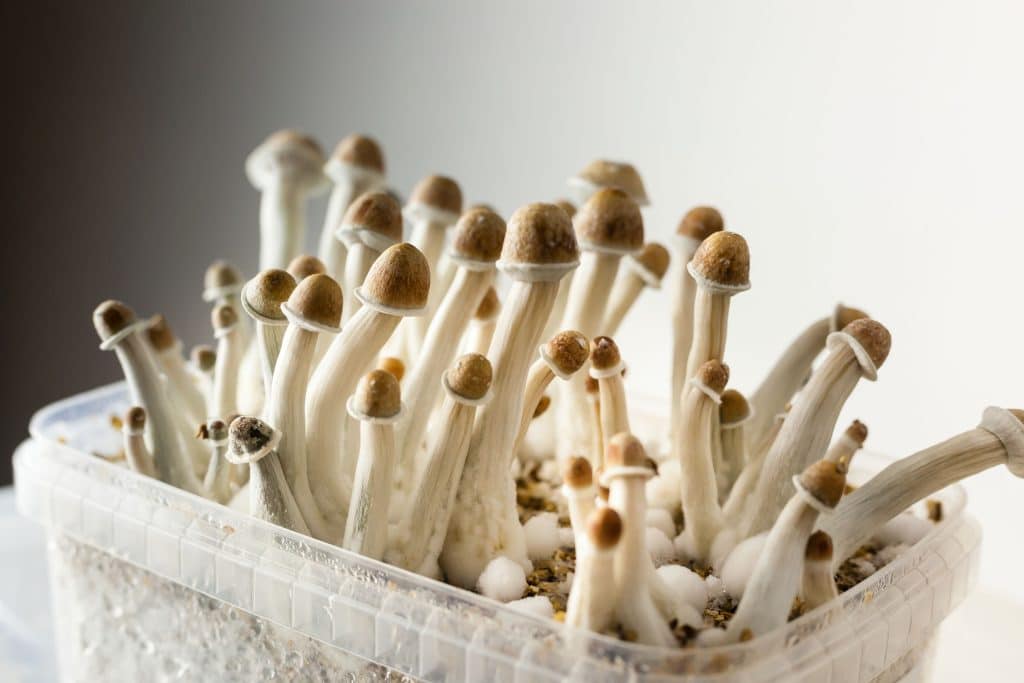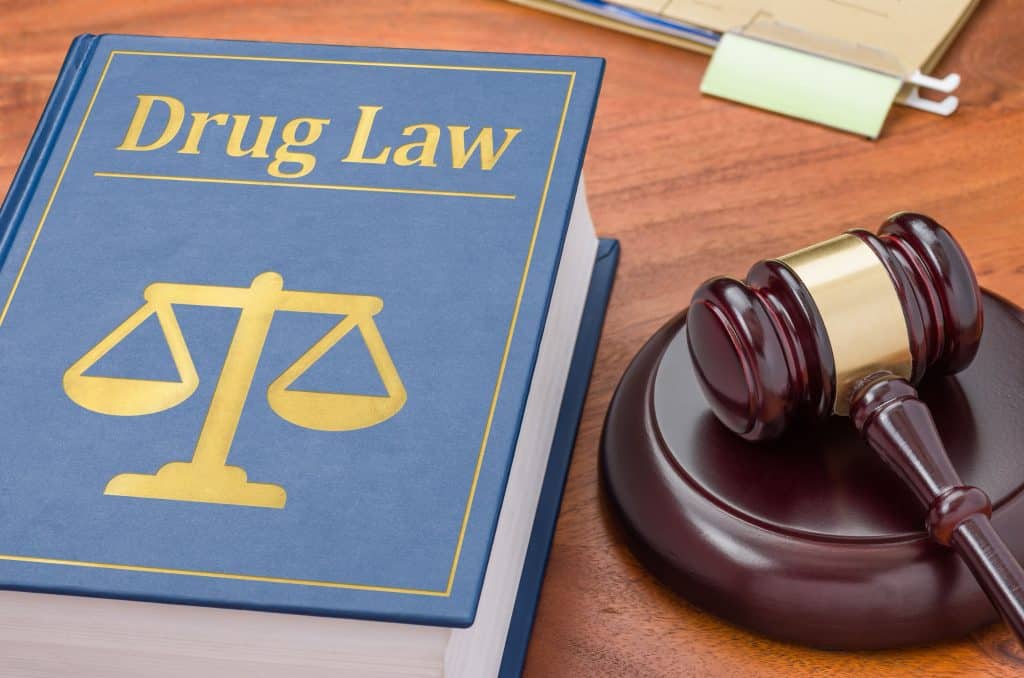It’s a fight in the US, that’s for sure. State by state things are changing, while the federal government holds out. Or is it? Between the FDA giving several companies ‘breakthrough therapy’ status for emerging psychedelic medications, and the DEA now requesting even higher production of psychedelics going into 2023, it seems this may change soon.
New DEA request for more psychedelics
A few weeks ago, the DEA released a set of final production quotas for illicit drugs in the new year; all of which would be for research purposes. It first brought up increasing production of certain drugs in October when it released draft target goals. After releasing the draft, it allowed a comment period before releasing the revised version. And wouldn’t you know it, the revised version calls for even more than the already increased draft numbers.
According to the final production quotas, the DEA wants significant production increases for psychedelics like psilocybin, LSD, mescaline, psilocin, and 5-MeO-DMT. How much of an increase in production is it asking for? Not a small amount, and bigger in the revised version than the draft.
The original goal set for the psychedelic compound psilocin was 8,000 grams for 2023, which is already double the production amount for 2022. After the comment period and revisions, this went up to 12,000 grams. 5-MeO-DMT, found in places like toad venom, was increased to 11,000 grams in the revised version, from the initial 6,000 the DEA was going to ask for; and MDMA went up to 12,000 grams from 8,200. The synthetic drugs MDA and 2-CB saw the biggest increases from draft to revised copy, with an increase to 12,000 grams from 200, and 25 to 5,100 grams, respectively.
Thanks for dropping in. For email updates, subscribe to the Cannadelics Weekly Newsletter, which also gets you some sweet deals on cannabis flowers, vapes, edibles, smoking equipment, cannabinoid compounds (like HHC), and too much more to name. Go ahead… Celebrate life! Get stoned!
According to the federal agency, “DEA is committed to ensuring an adequate and uninterrupted supply of controlled substances in order to meet the estimated legitimate medical, scientific, research, and industrial needs of the U.S., for lawful export requirements, and for the establishment and maintenance of reserve stocks.”
The updates were posted in the Federal Registry on Friday December 2nd. This is all very interesting considering all the drugs mentioned so far in this article, are Schedule I compounds. It reflects the growing popularity of psychedelics that the DEA has continued to increase these production limits year after year.
DEA already increased production amounts
Every year the DEA puts out new requirements, and the requirements tend to match what’s going on in society to a degree. Right now, they show the growing acceptance and marketability of psychedelics in medicine, and beyond. But this is not the first time we’ve seen the trend. A year ago, the DEA also raised production for compounds like psilocybin and psilocin, along with marijuana.
At that time, the DEA stated it wanted to increase: “…the schedule I substances psilocybin, psilocin, marihuana, and marihuana extract, which are directly related to increased interest by DEA registrants in the use of hallucinogenic controlled substances for research and clinical trial purposes.”
It went on, “DEA firmly believes in supporting regulated research of schedule I controlled substances… Therefore, the increases reflect the need to fulfill research and development requirements in the production of new drug products, and the study of marijuana effects in particular, as necessary steps toward potential Food and Drug Administration (FDA) approval of new drug products.”
For that year, the DEA requested two million grams of THC, which was a 500,000 gram increase from before. It doubled the ask for cannabis extracts, bringing the new total at that time to 500,000 grams. As far as psilocybin, it increased the ask to 1,500 from 50 (a 2,900% increase), and for psilocin it increased the ask to 1,000 grams from 50. This was all before the public comment period, but it shows well the trajectory at play.

Didn’t the DEA get sued over magic mushrooms
It’s probably a good idea for the DEA to do this, what with the issues its been having with being behind the times. In fact, the DEA has been so slow, that lawsuits are now waged against the government agency for not responding to requests, or barring psychedelic treatments. In July of this year it was reported that the agency was being sued for keeping sick patients from accessing magic mushroom treatments.
The reason such lawsuits can take place, is because the DEA, by barring access, is breaking federal law. The federal government set up the ‘Right To Try’ act, which explicitly allows the use of unapproved medications, including Schedule I drugs that are under research, so long as a doctor prescribes them. This is meant for extreme medical cases where traditional treatments don’t work, or none exist. The 2022 lawsuit came around because the DEA stopped a doctor from prescribing a magic mushroom treatment, thus violating the law.
The current case is a follow-up case to one that went before a federal appeals court in February 2022. At that time, the case was rejected on the procedural grounds that it was never clear if the DEA had intended its denial as a final rule. Clearly, the subject didn’t fade into nothing, spawning a new suit over the matter. The reason the appeals court couldn’t do more before, is because without a final rule, which acts as law, there isn’t technically a law for a federal appeals court to reverse.
Before the new case was filed, the plaintiff went straight to the DEA to ask for clarification as to whether the DEA was making this a final rule. And what did the DEA do? Nothing. Literally nothing. It didn’t feel like responding. Without a response, plaintiffs set a time limit, and when it was breached, they filed a new suit against the government agency. According to the newer filing, the, “DEA is unlawfully misinterpreting and misapplying Right to Try statute that should allow terminally ill patients to access Schedule I investigational drugs like psilocybin.”
Plaintiffs continued that “In denying Petitioners’ requested accommodation in the Final Agency Action, DEA hides behind a smokescreen, neglecting its duty to implement the federal RTT and violating the state RTT… It is attempting to use the Controlled Substances Act as a cudgel to thwart state medical practice, to the detriment of dying patients.”
The whole thing sounds like the DEA was rather confused. Confused about the policy of its own parent government. Or maybe it wasn’t confusion, but hesitation to move the subject further. Perhaps DEA officials were told not to answer by other government officials in other places. The increase in production amounts doesn’t signal an overall unwillingness to investigate these compounds, so its even more questionable that while continuing to raise quotas, the DEA would be brash enough to not respond to a request to use such compounds, which is 100% in line with federal law.

Is the government pushing for legal psychedelics?
None of this equals a legalization of course, but it doesn’t mean nothing when the DEA asks for higher production quotas for drugs like psychedelics. If there wasn’t an intention to do something with it, this story probably wouldn’t exist at all. It might not act as an official statement, but it certainly does make one. These are drugs people get arrested and imprisoned for, but they’re also at the forefront of a medical revolution. The DEA is saying a lot by continuing to increase production, and to increase it by so much.
In exactly the same way the FDA is by giving out ‘breakthrough therapy‘ designations to experimental psychedelic drugs involving magic mushrooms and MDMA. As such a designation is meant to get products to market faster (given to treatments that propose a better benefit to already-approved treatments), the logic is that if a government agency is giving it, then that government agency wants to see the drugs approved.
So we have one government agency increasing the quota amounts for production of these drugs, and another government agency helping along multiple companies creating medications with these compounds. No, none of this equals a formal legalization of anything, but it does make clear, that we can expect one soon.
Conclusion
The DEA and its increased production quota for psychedelics like MDMA and psilocybin speaks volumes to the state of things right now. We might have to wait a little longer for the full result, but its pretty clear the trajectory we’re on.
Welcome one and all! Pretty cool that you found us here at Cannadelics.com; a news site geared toward bringing you top-notch reporting of the cannabis and psychedelics industries. Drop by frequently to keep updated on everything, and sign up to the Cannadelics Weekly Newsletter, to ensure you always know what’s going on.
The post DEA Wants Increased Production of Psychedelics In 2023 appeared first on Cannadelics.
Via https://cannadelics.com/2023/01/01/dea-wants-increased-production-of-psychedelics-in-2023/
source https://rosalinaklerkx.weebly.com/blog/dea-wants-increased-production-of-psychedelics-in-2023
No comments:
Post a Comment